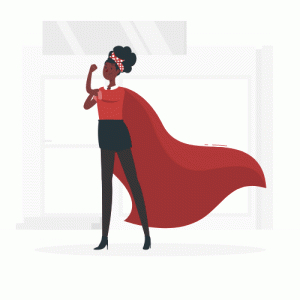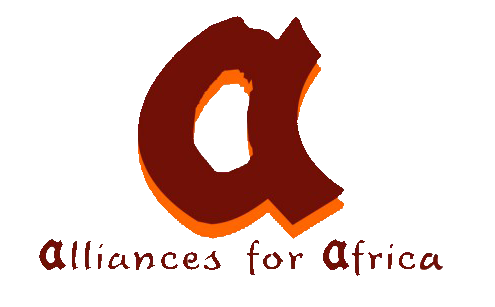A Statement on Women’s Human Rights in Nigeria at the 62 Ordinary Session of the African Commission on Human and People’s Rights (ACHPR)
(25 April – 9 May 2018)
Submitted by: Alliances for Africa (AfA)
Observer Status Number No: 235
Your Excellency Madam Chairperson of the Commission, Honourable Commissioners,
Distinguished Delegates and participants, I am pleased to address this gathering of the ACHPR on behalf of Alliances for Africa and her partners particularly the Solidarity for African Women’s Rights (SOAWR).
AfA commends the recent developments in the Continent with regard to the promotion and protection of the rights of women and girls as enshrined in the African Charter on Human and Peoples’ Rights and the Protocol to the African Charter on Human and Peoples’ Rights on the Rights of Women in Africa (the Maputo Protocol). As a member of SOAWR, we congratulate the 40 countries that have ratified the Maputo Protocol and call on the remaining 15 to ratify and domesticate the Maputo Protocol before the year 2020.
Nigeria ratified the Protocol to the African Charter on Human and Peoples’ Rights on the Rights of Women in Africa (Maputo Protocol) on 16 December 2004 and deposited its articles of ratification on 18 February 2005. Unfortunately, Nigeria has not yet domesticated the Protocol. Noting that this session of the ACHPR will review the state report, we urge the Commission to encourage the government of the Federal Republic of Nigeria to domesticate the Maputo Protocol to enhance the rights of women in Nigeria.
We commend the government of the Federal Republic of Nigeria for not only submitting her 6th periodic country report to the Commission on time but for also including a distinctive section in line with Article 26 of the Maputo Protocol on the measures taken to implement the Protocol.
However, the following are the concerns on the ongoing human rights violations against women in Nigeria.
Gender based Discrimination and Violence Against Women
Between 2011 and 2017, hundreds of women in Abuja have been harassed by agents of the Abuja Environment Protection Board (AEPB) supported by the Nigerian Police Force and Nigerian Military on the basis of carrying out their statutory function of keeping Abuja’s environment clean and by extension getting rid of prostitutes and destitute persons on the streets of Abuja. There appears to be a systematic and institutional abuse of women’s rights by security agents and lack of protection by the government to address this.
AfA’s Gender Justice Project/Africa Courts Initiative, which has recorded great successes, was designed to support women to pursue justice for rights violations using strategic litigation, legal advocacy and development of jurisprudence and reforms in the African Human Rights System. Through this project AfA and other partners[3] supported four women in the case of Dorothy Njemanze & 3 others v Federal Republic of Nigeria before the Economic Community of West Africa (ECOWAS) Court[4] to successfully challenge the arbitrary arrests, illegal detentions, psychological, verbal, physical and sexual abuse they experienced by the AEPB. The case was filed on the 17th of September 2014, coordinated by Alliances for Africa (AFA) being an Organisation keen on protection and promotion of women’s right
On 12th October 2017, the ECOWAS court held that Nigeria had violated the women’s human rights and awarded three of them the sum of Six Million Naira (about US$16,700) each. The judgement is significant because it’s the first ever pronouncement of a Regional Court on women’s human rights using the Protocol to the African Charter on Human and Peoples’ Rights on the Rights of Women in Africa (Maputo Protocol) .
AfA is delighted by this land mark decision that not only promotes gender justice in Africa but has motivated African women to seek redress for the violation of their human rights.
Madam Chairperson,
The Violence Against Persons Prohibition (VAPP) Act 2015 has been passed at the National level but the same is yet to be domesticated in the states apart from four namely Lagos, Ogun, Ekiti and Anambra that have passed similar laws. Violence against women is still a major issue and more worrisome is the lack of diligent prosecution of such cases.
Young girls and women at the internally displaced camps (IDP) in the North East Nigeria have been raped and sexually exploited by government officials, who include the camp leaders, vigilante groups, policemen and soldiers. According to the report by the Human Rights Watch in 2016, about 43 women and girls living in seven IDP camps in Maiduguri, the Borno State were sexually abused, exploited and sometimes forced into early marriage by officials. It is bad enough that these women and girls are not getting the much needed support for the horrific trauma they suffer at the hands of Boko Haram, but it is quite unfortunate that people who should protect these women and girls are attacking and abusing them.
The spate of insecurity ravaging the Country particularly in the North Eastern zone, affects girls and women disproportionately and remains a deep concern. Four years after over 200 girls were abducted by Boko Haram from Chibok Girls Secondary School Bornu State, the Nigerian government is yet to recover all the abducted schoolgirls. As at May 2017, only about 109 of the girls were recovered out of over 200 girls so affected. A similar case was repeated on February 21, 2018 when 110 girls were abducted from Government Girls Science and Technology School Dapchi, Yobe State but we are glad to report that they have been rescued apart from one Leah Saribu, though five were reported dead. We believe that more needs to be done by Nigerian government to safe guard boarding schools particularly in the North East Nigeria.
Discrimination in the places of work is gradually gaining ground in Nigeria. In March 2018, a communication company in Nigeria allegedly laid off over 100 workers with majority being married women without justifiable reason. The affected women are considering legal action as to enforce their rights to freedom from gender discrimination.
Legislative Measures: Non Domestication and implementation of Maputo Protocol.
The Gender and Equal Opportunity (GEO) bill 2016, which is an amalgamation of the principles and provisions of CEDAW and the Maputo Protocol and specifically prohibits all forms of discrimination, is still before the Senate. AfA notes with concern the lack of a firm commitment by the legislators to announce a new date and to pass the Bill, which will enhance the domestication and implementation the Maputo Protocol at the domestic levels and would provide the legal framework for protecting women’s human rights and holding government accountable for all forms of gender discrimination.
Right to Participate in the Political and Decision-Making Process
Nigeria has the lowest number of women representatives in parliament in Africa and 181st position in the world.[5] Currently at the National Assembly out of 360 house of representative members, 20 are women while in the senate that has 108 seats, women occupy only 7 seats. The Nigerian Constitution and the Electoral Act as amended support equal representation of both women and men in decision making. Additionally, the National Gender Policy 2006 provides for 35% Affirmative action in favour of women. Despite these legislative and policy measures, there is poor implementation of Affirmative action and lack of political will by Government institutions which prevent and impede women’s access to elected and appointed political office.
AfA’s Recommendations
Madam Chairperson, Alliances for Africa calls on the African Commission to urge Nigeria to:
- Enforce the decision of the ECOWAS Court in Dorothy Njemanze& 3ors v Nigeria and ensure the women have their full compensation as directed by court for the gender-based violence that they have experienced.
- Domesticate the Maputo Protocol including by expediting the passage of the Gender and Equal Opportunities Bill (GEO) 2016.
- Ensure that the States yet to do so pass the Violence Against Persons (Prohibition) Act into Law.
- Protect displaced women and girls and ensure that they have access to basic rights, improved services within the camps and sanction the perpetrators of the heinous acts against humanity and safe guard schools against attacks from Boko Haram.
AfA pledge to continue to work with the commission, and particularly the special rapporteur on the rights of women in Africa on implementing the Maputo Protocol in Africa.
I thank you all for your attention.
ABOUT ALLIANCES FOR AFRICA (AFA) Alliances for Africa (AFA), is an African led International Non-Governmental Organization which focuses on human rights, peace and sustainable development with national offices in Lagos and Owerri Imo State Nigeria. AFA aims at enhancing and strengthening on a sustainable basis, local, national, sub-regional and regional institutions in Africa that are active in the monitoring, advancing, promoting and protecting of human rights, peace and sustainable development initiatives.
For more details on AfA Gender Justice Project/ African Courts, please contact
Ms. Chetachi Louis-Udeh
Legal Programs Officer
Mobile: +234 7039068960
Email: chetachi@alliancesforafrica,org
Address: Plot 45, beside New Castle Hotel, Area A World Bank, New Owerri Imo State Nigeria.
Office Email: afa@alliancesforafrica.org
Telephone: +234 8161576782 (Lagos); +234 8168702759 (Owerri).
Visit our website on www.alliancesforafrica.org
or follow us on @AfAafrica;
alliances for Africa;
alliancesforafrica@blogspot.co
[1] Alliances for Africa is an African-led international non-governmental human rights, peace and sustainable development organisation with observer status with the African Commission on Human and Peoples’ Rights (ACHPR).
[2] The Solidarity for African Women’s Rights (SOAWR) Coalition is a regional network comprised of 50 national, regional and international civil society organizations based in 25 countries, working towards the promotion and protection of women’s human rights in Africa. Since its inauguration in 2004, SOAWR’s main area of focus has been to compel African states to urgently sign, ratify, domesticate and implement the Protocol to the African Charter on Human and Peoples’ Rights on the Rights of Women in Africa (hereinafter referred to as ‘the Protocol’).
[3] Open Society Initiative for West Africa (OSIWA), the law firm of S.P.A Ajibade SAN, Institute for Human Rights and Development in Africa and the Nigerian Women Trust Fund
[4] Suit no: ECW/CCJ/APP/17/14
[5] Women in National Parliaments by IPU: http://archive.ipu.org/wmn-e/classif.htm

